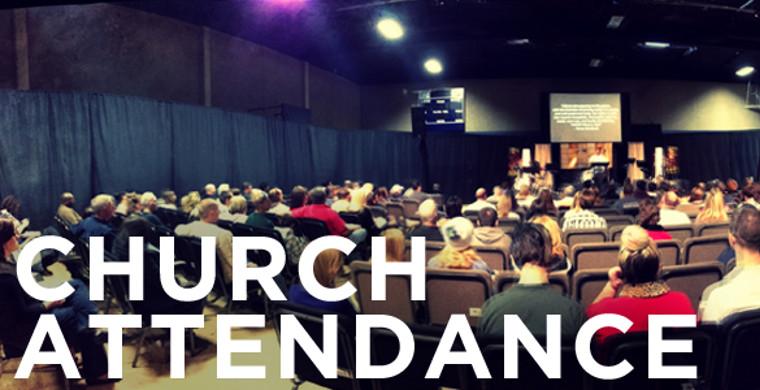New Findings Reveal that literal interpretation of Bible "helps increase church attendance"
By David W. Virtue, DD
www.virtueonline.org
November 17, 2016
An academic survey study of 2,225 churchgoers in Ontario, Canada, conducted over five years by Wilfred Laurier University revealed that people interpreting the Bible literally "helps increase church attendance."
Thus the study finds conservative theology mixed with innovative worship approaches helps Protestant churches grow congregations.
"If we are talking solely about what belief system is more likely to lead to numerical growth among Protestant churches, the evidence suggests conservative Protestant theology is the clear winner," said David Haskell, the Canadian study's lead researcher.
The findings contradict earlier studies undertaken in the US and the UK, which attempted to discover the underlying causes of a steep decline in church attendance in recent decades but concluded that theology was not a significant factor.
Churches that promote evangelical styles of worship and strictly adhere to what they see as biblical truths will be encouraged by the findings. Those of liberal persuasion will need to re-examine reasons for their decline.
Haskell said he expected the findings of the study, which was not commissioned by any group or organization, to be controversial. "If you're in a mainline church and that church is dying, and you've just heard that the theological position that you have is likely what's killing it, you're not going to be very happy about that," he said.
"Theological orientation cuts to the very core of the religious practitioner."
Church attendance in the U.S. is dropping dramatically. Officially the US is no longer a Protestant nation. It is a nation of Nones.
The Pew Research Center reported last year that Protestant congregations in the US were decreasing by up to a million people a year. Canada's four largest mainstream Protestant churches have seen their membership drop by half since the mid-1960s while the population has nearly doubled.
In the UK, attendance at Church of England services dropped by half between 1980 and 2015. Statistics published last month showed that 960,000 adults and children -- less than 1.5% of the population -- went to church each week during the sample month of October 2015. The C of E has launched a program of evangelism in an attempt to stem the decline.
Overall, church attendance in mainline Protestant denominations is falling. Buildings are being closed, with some being converted into condominiums and private homes. But some individual churches are growing, often by leaps and bounds. Why?
The long disputed question of just what role adherence to core Christian orthodoxy plays in a church's numerical success--that is, whether it is growing or declining--has received a compelling and convincing answer in a major new peer-reviewed study--the Mainline Church Growth Study--by two Canadian academics, Wilfrid Laurier University sociologist David Haskell and Kevin Flatt, professor of church history at Hamilton's Redeemer University College. They gave detailed questionnaires to both clergy and congregations of mainline Protestant churches (Anglican, United, Presbyterian and Evangelical Lutheran) in southern Ontario and looked at data from 2003-13.
The answers reveal a sharp divide: growing churches believe far more strongly than declining ones in traditional Christian orthodoxy--basic articles of faith (the ancient Creeds), the authority of Scripture, God's visible working in the world today, the exclusivity of Christianity (Jesus as the door to eternal life), and the importance of daily prayer.
In a Canadian exclusive, Haskell and Flatt have shared their findings with Maclean's. In addition to the study's key results found in this story, here are nine things that stood out among the answers given by congregants and clergy that are growing or shrinking--all rather relevant for a religion of revelations.
Among the key findings are:
Only 50% of clergy from declining churches agreed it was "very important to encourage non-Christians to become Christians", compared to 100% of clergy from growing churches.
71% of clergy from growing churches read the Bible daily compared with 19% from declining churches.
46% of people attending growing churches read the Bible once a week compared with 26% from declining churches.
93% of clergy and 83% of worshippers from growing churches agreed with the statement "Jesus rose from the dead with a real flesh-and-blood body leaving behind an empty tomb". This compared with 67% of worshippers and 56% of clergy from declining churches.
100% of clergy and 90% of worshippers agreed that "God performs miracles in answer to prayers", compared with 80% of worshippers and 44% of clergy from declining churches.
The study also found that about two-thirds of congregations at growing churches were under the age of 60, whereas two-thirds of congregations at declining churches were over 60.
For more click here: http://www.macleans.ca/society/it-has-risen-is-this-the-key-to-growing-protestant-churches/














